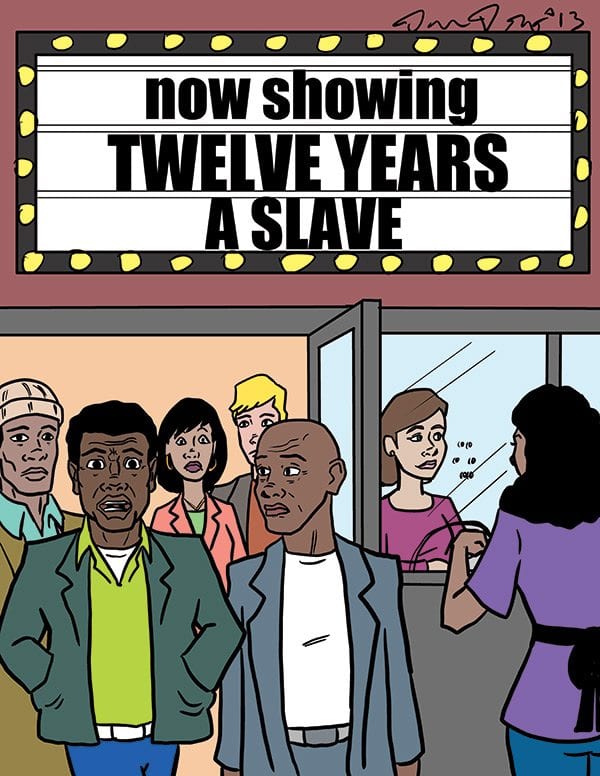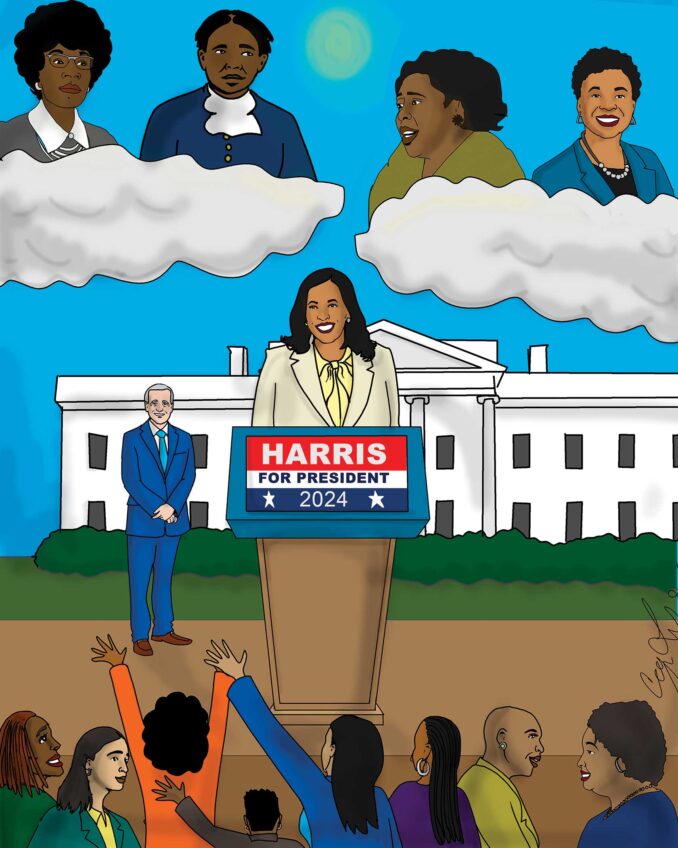
The spirit of freedom and independence is common in America. The Declaration of Independence even sanctions revolution against the government in appropriate circumstances. Yet Americans permitted the development of slavery in their new nation. Perhaps that was because the slaves were aliens and were racially different. Even today, many of the descendants of slavers or those who benefitted from the slave trade are not a bit embarrassed by the immoral conduct of their ancestors even though their misconduct was internationally publicized in the film “12 Years a Slave.”
In the past, the cinematic characterization of slavery often depicted it as merely a woeful inconvenience for the slave. Now, the film “12 Years a Slave” forces the audience to become aware of slavery’s horrid brutality. Those who would try to sanitize history encounter an imposing barrier. The story is based on the personal account of Solomon Northup, a black freeman from Saratoga, N.Y., who was shanghaied into slavery.
The idea of losing one’s freedom to slavery rather than being born into that condition has a great dramatic affect. Instead of slavery merely being incidental to another more important story being told, Northup’s experience of slavery is the primary story. The audience is forced to re-live the indignities and brutality imposed regularly upon other human beings.
In 1865, when slavery was outlawed by the 13th Amendment, sophisticated Americans knew full well that slavery was an economic policy, not a punishment assessed against Africans because they are black. There would have to be other strategies for plantations and factories to obtain the benefit of free or low cost labor. At this point many more people than the cruel plantation owners entered the process of abusing and oppressing blacks.
The sheriff and the judicial system had major roles to play. Unemployed freed slaves were arrested for vagrancy then convicted and sentenced for substantial periods of time. Rather than the county paying for their confinement they were leased to plantations and factories at a modest rate. The labor of blacks serving unjust sentences provided a source of county revenue.
The bankers became involved in the strategy. They financed sharecroppers’ contracts that were designed to assure that the property owners thrived while sharecropping farmers struggled for survival. Poor whites also became ensnared in this system.
Although former slaves became citizens of the United States in 1868, there was a coherent effort throughout the Old Confederacy to deny blacks the right to vote and other benefits often afforded citizens. When blacks became too insistent, the problem was often solved with a lynching of the miscreant. While the number will vary with different researchers, it is estimated that between 1880 and 1930, 2,462 African Americans were lynched in the South.
Northup’s book was published in 1853. To young blacks this might seem like ancient history, but there is an important lesson to be learned. A critique of the film could easily focus on the savage brutality of the Euro-Americans. However, man’s inhumanity to others is an old story. Northup’s tenacity and his extraordinary determination to regain his freedom is the important message.
Northup survived and some of his descendants attended the premier of the film 160 years after the publication of the book. They were proud of their ancestor’s struggle to regain his freedom. He endured such persecution that makes today’s racial discrimination pale by comparison. Today African Americans must never cease the effort to progress and thrive, no matter how many years it takes.






